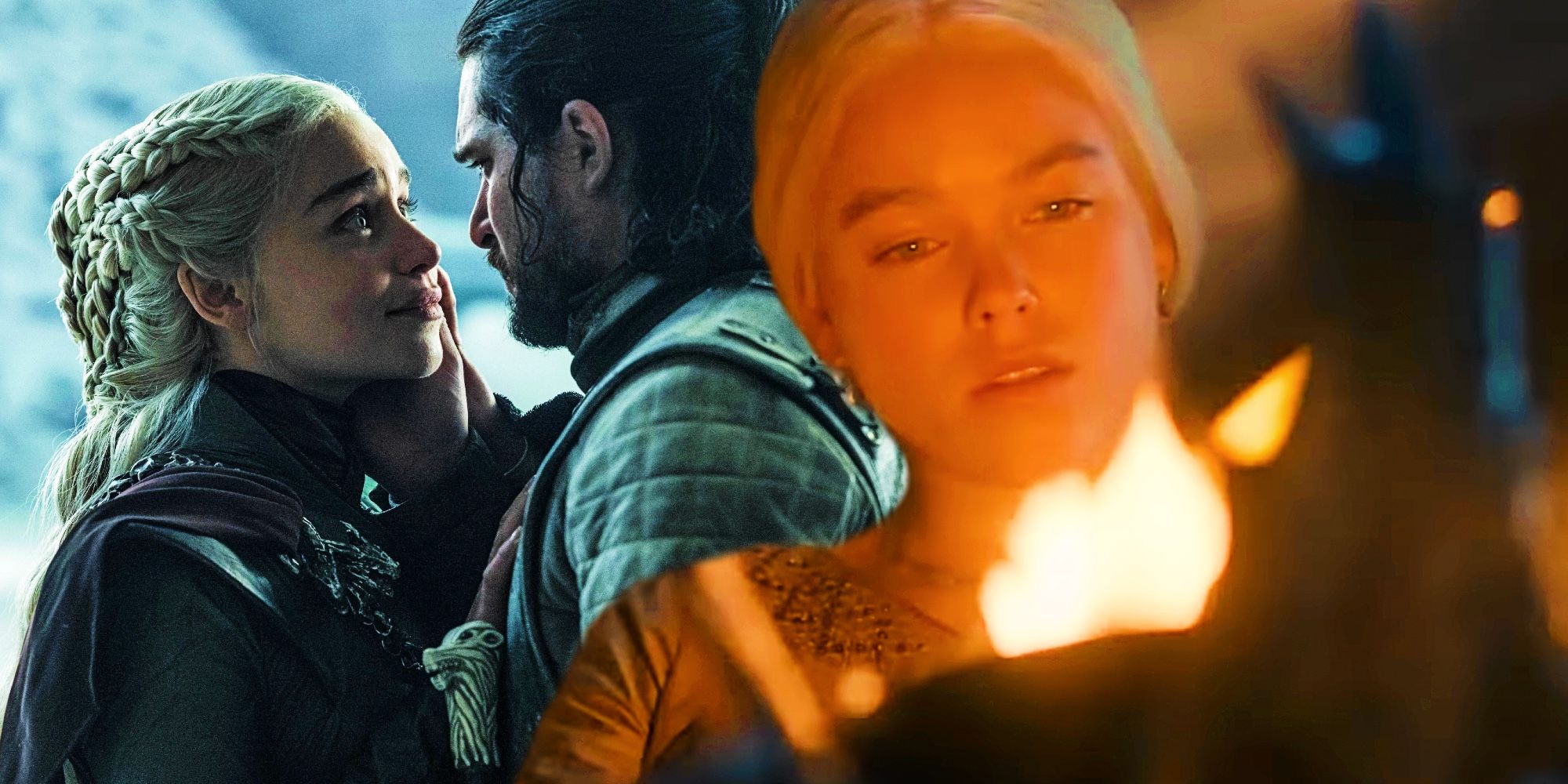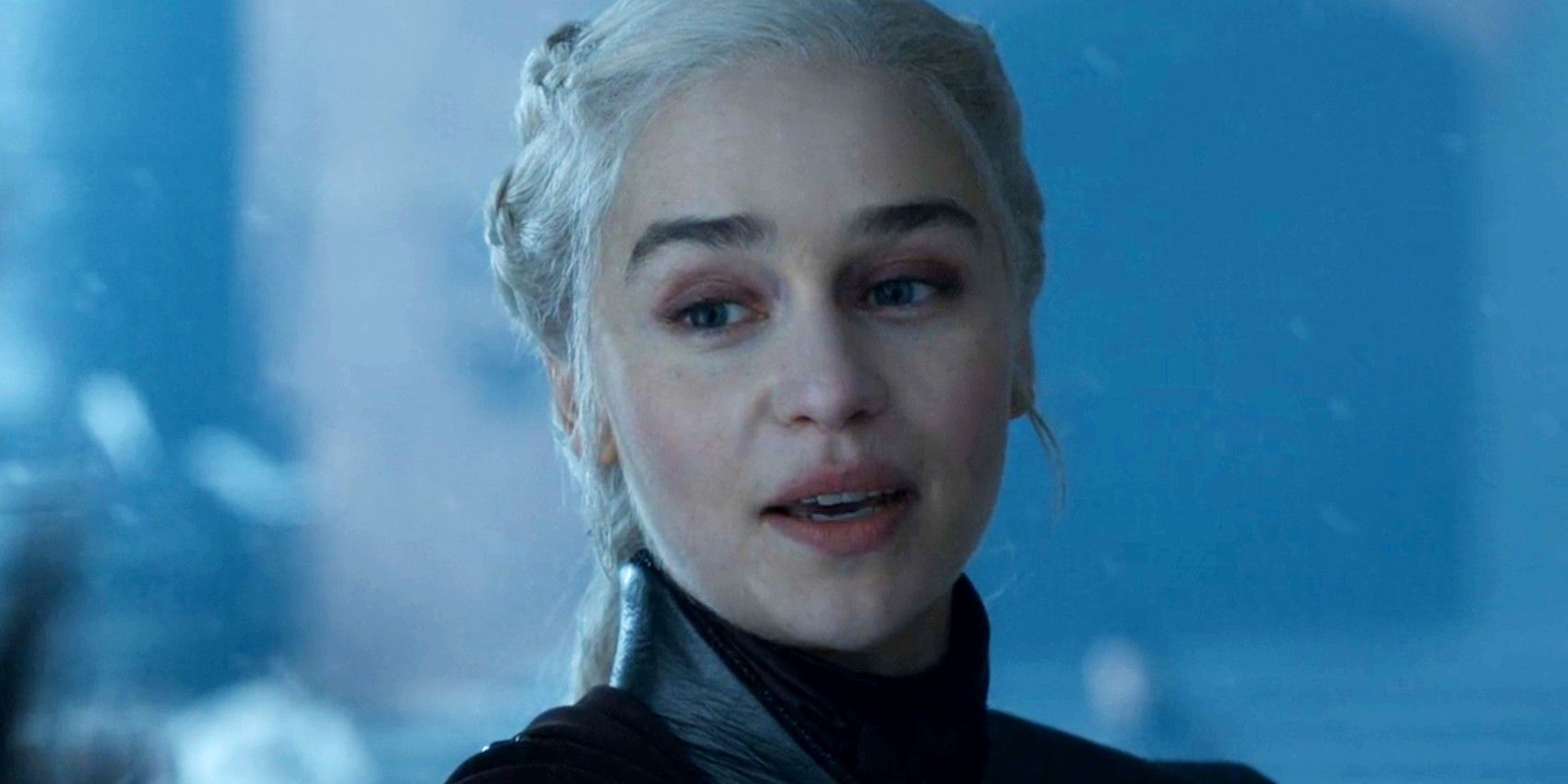
Daenerys Targaryen died in Game of Thrones’ series finale, which proved very controversial, but House of the Dragon gave her death greater meaning.
Daenerys Targaryen died in Game of Thrones season 8, and prequel show House of the Dragon revealed the real reason her death had to happen. Having been built up as one of the show’s main heroes, Daenerys’ villain turn and subsequent death was one of the biggest reasons Game of Thrones’ ending proved so controversial. Dany lost those closest to her and burned King’s Landing to the ground, becoming the so-called “Mad Queen,” which condemned her to her divisive fate.
Jon Snow killed Daenerys in Game of Thrones’ finale, something that had once seemed unthinkable but, in newer context, does fit not only her story but larger Targaryen history. Daenerys long believed her destiny was to claim the Iron Throne. House of the Dragon showed that while she was indeed destined to do something important, it was a very different role.
Aegon’s Dream Shows Daenerys’ Destiny Was Defeating The White Walkers, Not Claiming The Iron Throne
House of the Dragon’s season 1 premiere, which took place a little under 200 years before Game of Thrones, delivered a major retcon, revealing Aegon the Conqueror’s dream of White Walkers. Dubbed “The Song of Ice and Fire,” Aegon’s prophecy foretold of a coming Winter where darkness would spread across all of Westeros. And the only way to defeat it was with a Targaryen ruling. Rather than Aegon’s Conquest being one of just ambition and power (though it was those things too), this made it something bigger than just him or any King or Queen: it was destiny.
Except, of course, that Aegon never faced the White Walkers. Nor did the King after him, nor any Targaryen King to have ever lived. The only Targaryen styling themselves as Westeros’ King or Queen who did face them was Daenerys, and, yeah, she played a part in their ultimate defeat. Arya killed the Night King, but the war would not have been won without Daenerys’ forces and dragons. This, then, was Daenerys’ true destiny – to complete Aegon’s dream, making it a reality; not to lead Westeros forever, but to lead them to the greatest, most vital victory. It was a heroic destiny, not one driven by power or ambition.
This then suggests that the real reason behind why Daenerys died in Game of Thrones season 8 is that Aegon’s prophecy was fulfilled, and there was nothing to come after it. The dream did not tell of the Targaryens ruling Westeros after the White Walkers had been defeated; there’s a blank space there, and Daenerys’ death fills the void, just as Jon Snow foregoing any titles and claims of his own to head back beyond the Wall does. The Targaryens’ purpose in Westeros was over, and thus Daenerys, whose actions post-Night King fit her heritage but not prophecy, could instead find peace (albeit the kind that, er, comes from being stabbed by your nephew-slash-lover).
Why Daenerys’ Death In Game Of Thrones Season 8 Made Sense As Her Ending
Daenerys dying in Game of Thrones season 8 ultimately fits her destiny, both in terms of what House of the Dragon suggests it really is, and what she believed it to be. While Dany was a hero for most of the show’s run, she increasingly bought into the idea that she was not only the true ruler of Westeros, but possessed a divine right to take the Iron Throne.
A clear warning for Dany can be seen in Stannis Baratheon, a man who begins with honorable intentions but dies having lost his way, consumed by belief in a destiny fueled by others around him (including followers of the Lord of Light). Game of Thrones rewards its reluctant leaders, bestowing power upon those who do not seek it and punishing those who most actively try to take it for themselves. Like Stannis. Like Daenerys.
Another clear sign for why Daenerys had to die can be found in the parallels between Game of Thrones’ ending and Lord of the Rings’ own conclusion. Daenerys is not a 1:1 match for Gollum – far from it – but their endings are similar. Both characters are utterly corrupted and corroded by their desire for power, and for their belief that an object of such is rightfully theirs (for the Iron Throne, see the One Ring). And crucially, both of them die when it is finally in their grasp: Gollum grabbing for the ring as he plunges into the fiery depths of Mount Doom, Daenerys killed standing before the Iron Throne.
Their arcs were so motivated by these pursuits that their fates became intrinsically linked to these objects of power: they could never live without them, but nor could they be allowed to truly hold them. Daenerys would not have been a fit ruler for Westeros, but nor could she have returned to any other way of life, and that meant there was no choice but to kill her in Game of Thrones season 8.


